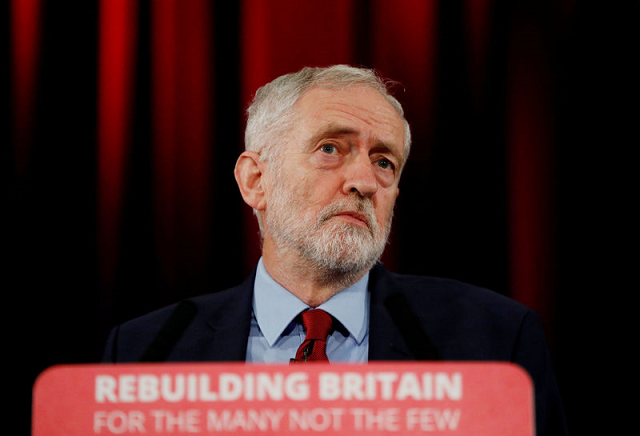British Labour leader Corbyn curves toward new EU referendum option
Lawmakers will debate and vote on the next steps on January 29

Lawmakers will debate and vote on the next steps on January 29. PHOTO: REUTERS
With the clock ticking down to March 29, the date set in law for Brexit, the United Kingdom is in the deepest political crisis in half a century as it grapples with how, or even whether, to exit the European project it joined in 1973.
After May’s Brexit divorce deal was rejected by 432-202 lawmakers last week, the biggest defeat in modern British history, some lawmakers are trying to take control of Brexit from May’s weakened minority government.
UK PM's office says MP Brexit moves 'extremely concerning'
May on Monday proposed tweaking her deal, a bid to win over rebel Conservative lawmakers and the Northern Irish party which props up her government, but Labour said May was in denial about the crushing defeat of her plans.
Labour put forward an amendment seeking to force the government to give parliament time to consider and vote on options to prevent a ‘no deal’ exit - a course May has repeatedly refused to rule out.
Among the options, Labour said, should be a permanent customs union with the EU and “a public vote on a deal” - both proposals that May has ruled out.
Brexit in dates: From leave shock to deadlock in Parliament
As the British parliament, which traces its roots through a 1,000 years of history, tries to avoid what most lawmakers think would be a disorderly Brexit without an approved deal, there is still no clear majority for an alternative option.
Lawmakers will debate and vote on the next steps on January 29.



















COMMENTS
Comments are moderated and generally will be posted if they are on-topic and not abusive.
For more information, please see our Comments FAQ